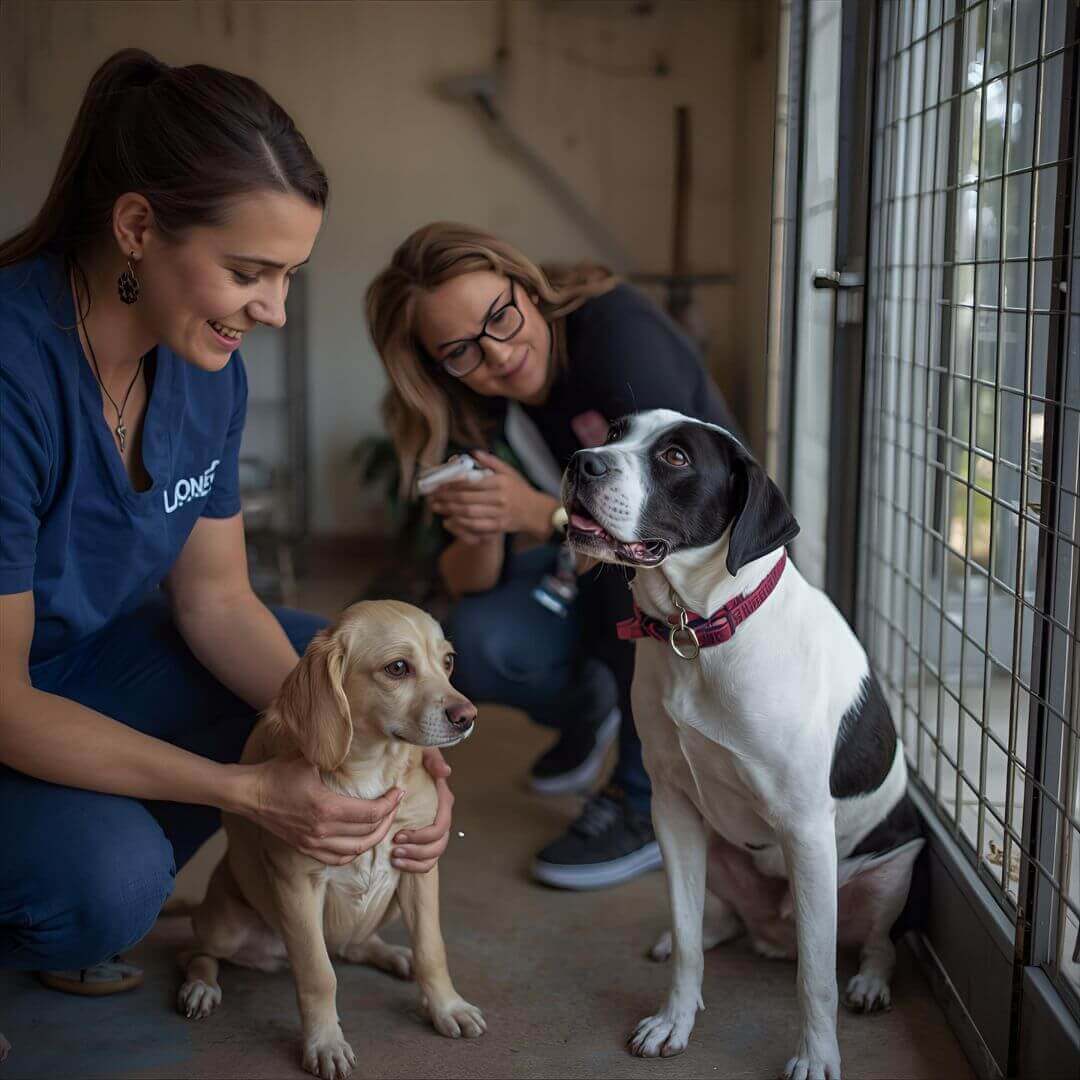Adopting a pet is a profound commitment. Many people dream of having a pet to call their own, but the decision of where to adopt a pet can sometimes be overwhelming. Should you choose a pet from a breeder, or is adopting a rescue pet the better option?
While there is no one-size-fits-all answer, adopting a rescue pet brings with it a unique set of benefits and rewards. This article will help you explore whether adopting a rescue pet is better for you by covering essential aspects like benefits, challenges, yes or no and practical considerations.
Understanding Rescue Pets
A “rescue pet” refers to an animal, often a dog or cat, that has been rescued from difficult situations such as abandonment, neglect, abuse, or overpopulation. These animals are usually brought into shelters, foster care, or rescue organizations where they are given medical care, socialization, and behavioral assessments before being made available for adoption.
While rescue pets can include animals from any background, the common thread is that these animals have faced hardships and need a second chance. Whether they are puppies and kittens or older dogs and cats, rescue animals are looking for a loving family to call home.
The Adoption Process

1. Research
Before adopting a rescue pet, it’s essential to understand the level of responsibility that comes with it. Consider the time, effort, and financial resources required to care for a pet. It’s important to research specific breeds, their needs, and the general adoption process to make an informed decision.
2. Choosing a Pet
Visit local shelters or rescue organizations to meet pets and find the right match for your lifestyle. Whether you’re looking for a playful puppy, a calm senior dog, or a cat, adopting a pet from a rescue organization will provide you with a wide variety of choices.
3. Adoption Application
Once you’ve found a pet that you believe would fit well in your home, you’ll need to complete an adoption application. This application typically requires information about your living situation, experience with pets, and understanding of pet care.
4. Home Visit or Interview
Many shelters or rescue organizations require a home visit or an interview as part of the adoption process. This ensures the home is a safe and appropriate environment for the pet.
5. Adoption Fee
Most rescue organizations charge an adoption fee that covers the cost of vaccinations, spaying/neutering, and sometimes microchipping. The adoption fee can vary, but it is usually lower than the price of buying a pet from a breeder.
Benefits of Adopting a Rescue Pet
- Saving a Life
One of the most significant benefits of adopting a rescue pet is that you’re giving that animal a second chance at life. Many pets in shelters are abandoned or have experienced traumatic events.
By adopting, you’re directly saving a life and preventing the animal from facing the risk of euthanasia, which is a sad reality in overcrowded shelters.
- The Impact of Saving a Life
The positive impact of saving a life is immeasurable. Not only are you improving the quality of life for the animal, but you are also helping to reduce the number of pets in shelters and decreasing the overall pet overpopulation problem.
Overpopulation is a major issue in many countries, and shelters are often at capacity, leading to tough decisions regarding euthanasia.
- Reduced Overpopulation
By adopting a pet, you are actively contributing to the reduction of pet overpopulation. Every time you choose to adopt instead of buying from a breeder, you help combat the cycle of overpopulation. Overpopulation leads to overcrowded shelters and countless homeless pets on the streets.
- Health and Behavioral Assessments
Rescue organizations often conduct thorough health checks and behavioral assessments before placing a pet in your care. This means that when you adopt a pet from a shelter, you’re adopting an animal that has been vetted and prepared for adoption.
Many shelters also offer post-adoption support, helping you with any behavioral challenges.
- Cost-Effectiveness
Adopting a rescue pet is typically more affordable than purchasing one from a breeder. Adoption fees are often much lower than the prices breeders charge for purebred pets. In addition to the fee, adoption often includes vaccinations, spaying or neutering, and sometimes microchipping—all of which can add up to significant savings.

- Supporting Ethical Practices
When you adopt a rescue pet, you support ethical practices and animal welfare. Unfortunately, some breeders and pet stores engage in unethical practices like overbreeding, poor living conditions, and selling animals without regard to their health or well-being. By adopting, you are making a choice that prioritizes the ethical treatment of animals.
Challenges of Adopting a Rescue Pet
While adopting a rescue pet is an incredibly rewarding experience, it also comes with certain challenges. Understanding these challenges before adopting can help you be better prepared.
- Behavioral Issues
Many rescue pets may have experienced neglect or abuse, and as a result, they may have behavioral issues. These may include fear of strangers, aggression, separation anxiety, or other challenges. While these issues can often be addressed with training, they require time, patience, and effort.
- Adjustment Period
When you bring a rescue pet into your home, it’s essential to remember that the pet may need time to adjust to its new environment. For many animals, moving from a shelter or foster home to a permanent home can be a stressful experience.
During this time, the pet may exhibit behaviors such as hiding, being overly cautious, or acting out. It’s important to be patient and understanding during this transition period.
- Health Issues
Some rescue pets may have health conditions that were not previously identified or treated. These issues may range from minor conditions, like skin allergies, to more severe conditions that require ongoing medical attention.
While shelters provide health screenings, it’s still important to ensure that your new pet gets regular veterinary checkups.
- Emotional Considerations
It’s important to understand that adopting a rescue pet is not just about providing food and shelter. You are taking on the responsibility of helping your pet heal emotionally from any past trauma. This process requires patience, care, and a willingness to be understanding and supportive.
Adoption vs. Buying from a Breeder
| Aspect | Adoption | Buying from a Breeder |
|---|---|---|
| Cost | Generally lower adoption fees | Higher purchase price |
| Animal’s History | Often unknown; may require adjustment | Known lineage and background |
| Ethical Considerations | Supports ethical treatment of animals | Varies; depends on breeder’s practices |
| Variety of Pets | Wide range of breeds and ages | Specific breeds; may have waiting lists |
| Health and Behavior | Thorough evaluations by rescue organizations | Typically good health, but may not be checked for behavioral issues |
Adoption Success Stories
There are countless stories of pets who were adopted from shelters and rescues, turning their lives around with the love and care of a new owner. For example, one story follows a dog named Max who was adopted from a shelter after being abandoned on the streets.
With proper training and care, Max became a loyal companion to his new family, bringing joy and love into their lives.
Adoption Myths and Misconceptions
Myth 1: Rescue Pets are Damaged or Problematic
One common myth is that rescue pets are “damaged” or have irreparable problems. In reality, many rescue pets are simply looking for a second chance at love and care. With time and patience, these pets can become loyal, well-behaved companions.
Myth 2: Rescue Pets Are Older and Less Playful
While many rescue pets are older, many are still young and full of energy. Rescue organizations often have puppies, kittens, and younger animals available for adoption.
Myth 3: Rescue Pets Have Unknown Medical Issues
Rescue organizations often provide thorough medical screenings and treatment to ensure that animals are healthy before adoption. However, as with any pet, regular checkups and preventative care are necessary.
How to Prepare for Adopting a Rescue Pet
Before adopting a rescue pet, it’s important to prepare your home. Make sure your living space is pet-friendly, with a designated area for eating, sleeping, and playing. Have necessary supplies such as food, toys, bedding, and grooming tools ready for your new arrival. Most importantly, prepare yourself mentally and emotionally for the responsibility of pet ownership.
Frequently Asked Questions
1. Are rescue pets healthy?
Yes, rescue pets undergo health screenings and vaccinations before adoption. However, regular veterinary checkups are essential to ensure continued good health.
2. How long does it take for a rescue pet to adjust?
Adjustment times vary depending on the pet’s past experiences. Some may adjust in a few days, while others may take weeks. Patience and consistency are key.
3. Can I adopt a specific breed?
Yes, there are breed-specific rescue organizations, so you can find the breed you desire while still adopting from a rescue.
4. What if my adopted pet has behavioral issues?
Many rescue organizations offer post-adoption support to help with behavioral issues. Professional training can also help address any concerns.
5. Is adopting a rescue pet suitable for first-time pet owners?
Yes, with proper research and preparation, adopting a rescue pet can be a rewarding experience for first-time pet owners.
Conclusion
Adopting a rescue pet is a compassionate and fulfilling decision that can enrich your life in many ways. While there are challenges associated with rescue pets, the benefits far outweigh the difficulties.
By choosing to adopt, you not only provide a second chance to a pet in need, but you also contribute to reducing overpopulation and supporting ethical animal practices. If you are ready for the commitment and understand the responsibilities of pet ownership, adopting a rescue pet can be a life-changing experience.


